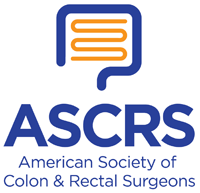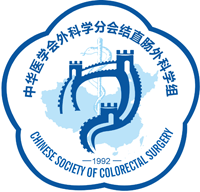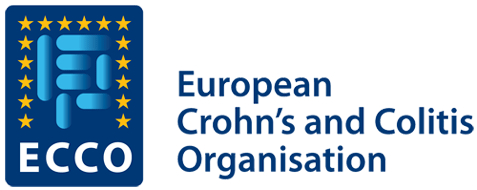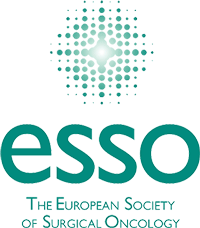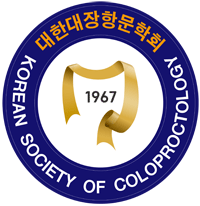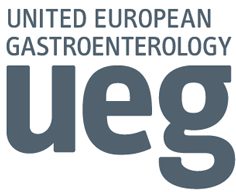I was very fortunate and honoured to be selected as the first ESCP exchange fellow with the Korean Society of Coloproctology. I applied for this fellowship as this allowed me to attend a large Asian colorectal meeting, observe surgical techniques less applied in Europe, like complete mesocolic excision with (D3) central vascular ligation, and to get to know a different health care system, working environment and (professional) culture.
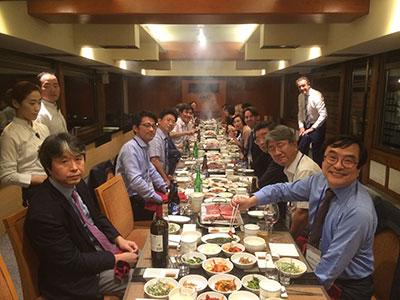 On the first of September, I travelled from Amsterdam to Seoul to attend the International Colorectal Research Summit 2016 at Sejong University hosted by the Korean Society of Coloproctology (KSCP). This was an excellently organised meeting including lectures on several topics within the field of Coloproctology by experts invited from all over the world. For the sessions in the Korean language, interpreters were present for translation to English which I highly appreciated. I was delighted to meet several Korean colorectal surgeons during this meeting. It was a great honour for me to have the opportunity to present my own research work on the long-term oncologic outcome in converted laparoscopic colorectal cancer patients. After the first day of the meeting, I was invited to the welcome dinner of the KSCP. I had a great evening meeting several key persons of the KSCP as well as other international colorectal surgeons while enjoying a delicious Korean barbeque. I was excited to learn a lot about the Korean culture during this evening.
On the first of September, I travelled from Amsterdam to Seoul to attend the International Colorectal Research Summit 2016 at Sejong University hosted by the Korean Society of Coloproctology (KSCP). This was an excellently organised meeting including lectures on several topics within the field of Coloproctology by experts invited from all over the world. For the sessions in the Korean language, interpreters were present for translation to English which I highly appreciated. I was delighted to meet several Korean colorectal surgeons during this meeting. It was a great honour for me to have the opportunity to present my own research work on the long-term oncologic outcome in converted laparoscopic colorectal cancer patients. After the first day of the meeting, I was invited to the welcome dinner of the KSCP. I had a great evening meeting several key persons of the KSCP as well as other international colorectal surgeons while enjoying a delicious Korean barbeque. I was excited to learn a lot about the Korean culture during this evening.
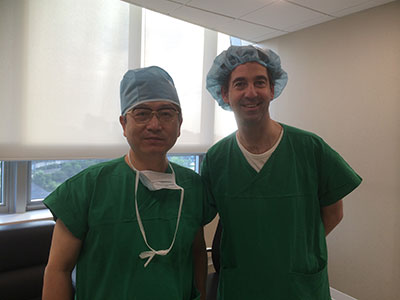 After the International Colorectal Research Summit meeting, I had the opportunity to visit several hospitals in Seoul. This hospital tour was very well organised by the KSCP. First, I visited Severance Hospital Yonsei University College of Medicine where I was welcomed by Professor Kim Nam Kyu. He explained the organisation of his department and showed me the research work recently performed at his unit. I was impressed by the size of this hospital, including 3000 beds, and the large amount of colorectal procedures performed by his team every day. During my stay in this hospital, I was able to observe several robotic rectal resections as well as a HIPEC procedure in a patient with very extensive peritoneal disease. It was also very interesting to discuss the differences in health care organisation between Korea and my own country with the colorectal surgeons of this unit, to hear how colorectal fellows are trained in this hospital and to observe how well the colorectal health care in Korea is organized.
After the International Colorectal Research Summit meeting, I had the opportunity to visit several hospitals in Seoul. This hospital tour was very well organised by the KSCP. First, I visited Severance Hospital Yonsei University College of Medicine where I was welcomed by Professor Kim Nam Kyu. He explained the organisation of his department and showed me the research work recently performed at his unit. I was impressed by the size of this hospital, including 3000 beds, and the large amount of colorectal procedures performed by his team every day. During my stay in this hospital, I was able to observe several robotic rectal resections as well as a HIPEC procedure in a patient with very extensive peritoneal disease. It was also very interesting to discuss the differences in health care organisation between Korea and my own country with the colorectal surgeons of this unit, to hear how colorectal fellows are trained in this hospital and to observe how well the colorectal health care in Korea is organized.
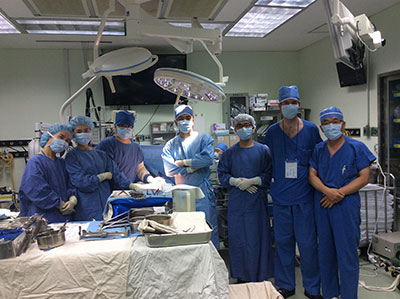 Seoul National University Hospital was my second stop. One of the fellows of Professor Kyu Joo Park kindly welcomed me at this unit. I was excited to be able to observe a laparoscopic complete mesocolic excision with central vascular ligation (D3) in a patient with right-sided colon cancer during this visit. This operation was performed by Professor Jeong who was the principal investigator of the Korean trial. I also had the opportunity to observe several open colorectal resections performed by Professor Park. I did a hospital tour with one of the colorectal fellows as well, including the surgical ward and endoscopy suites. I was also able to attend some outpatient clinics and I was impressed by the large number of patients scheduled every day and how efficiently this was organized. During the evening, Professor Park invited me to have dinner together with some of his team members. We had a great time in a very nice restaurant in central Seoul. It was really enjoyable to exchange ideas and experiences with the Korean surgeons and it was amazing to hear about the extra-ordinary working hours and limited holidays within the Korean healthcare system.
Seoul National University Hospital was my second stop. One of the fellows of Professor Kyu Joo Park kindly welcomed me at this unit. I was excited to be able to observe a laparoscopic complete mesocolic excision with central vascular ligation (D3) in a patient with right-sided colon cancer during this visit. This operation was performed by Professor Jeong who was the principal investigator of the Korean trial. I also had the opportunity to observe several open colorectal resections performed by Professor Park. I did a hospital tour with one of the colorectal fellows as well, including the surgical ward and endoscopy suites. I was also able to attend some outpatient clinics and I was impressed by the large number of patients scheduled every day and how efficiently this was organized. During the evening, Professor Park invited me to have dinner together with some of his team members. We had a great time in a very nice restaurant in central Seoul. It was really enjoyable to exchange ideas and experiences with the Korean surgeons and it was amazing to hear about the extra-ordinary working hours and limited holidays within the Korean healthcare system.
Samsung Medical Cancer Center was my third visit in Seoul. It was great to see very modern facilities in this hospital. I was able to observe several laparoscopic colorectal cancer resections, including a single incision sigmoid colon resection. It was inspiring to learn how Professor Kim is used to completely dissect the lymph nodes from the origin of the inferior mesenteric artery as an alternative for a "high tie". I learned a lot of tips and tricks as well as pitfalls. It was also interesting to see the difference between the public and private ward during a tour in this hospital as this difference does not exist in my own country.
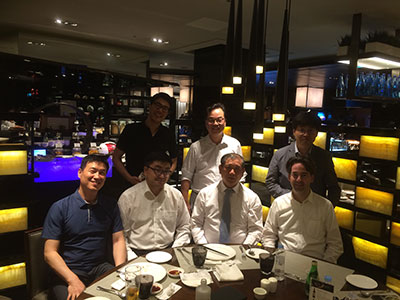 My last stop was Seoul Song Do Hospital. This hospital is specialized in proctology and pelvic floor diseases and I was very warmly welcomed by Dr. Woo Jung Ham and one of his fellows. Since several operating theatres are running at the same time every day in this hospital, I was able to observe a huge amount of procedures, including lateral internal sphicterotomy, sphincter repair, hemorroidectomy and stapled procedures for prolapse. The pelvic floor unit in this hospital was also impressive. At this unit, patients are able to get diagnostics, including defecography, manometry, endo-anal ultrasonography and pudendal nerve terminal motor latency testing during a one-day stop and discuss the results and proposed treatment with a colorectal surgeon the same day. This unit is very well organised and offers an excellent service for patients. During the last day of my stay in Seoul, I was invited by Dr. Woo Jung Ham and Dr. Lee to have dinner together with their colorectal team. We had a lovely evening in a very nice restaurant with a lot of different Asian food and had interesting conversions on cultural differences between Korea and the Netherlands.
My last stop was Seoul Song Do Hospital. This hospital is specialized in proctology and pelvic floor diseases and I was very warmly welcomed by Dr. Woo Jung Ham and one of his fellows. Since several operating theatres are running at the same time every day in this hospital, I was able to observe a huge amount of procedures, including lateral internal sphicterotomy, sphincter repair, hemorroidectomy and stapled procedures for prolapse. The pelvic floor unit in this hospital was also impressive. At this unit, patients are able to get diagnostics, including defecography, manometry, endo-anal ultrasonography and pudendal nerve terminal motor latency testing during a one-day stop and discuss the results and proposed treatment with a colorectal surgeon the same day. This unit is very well organised and offers an excellent service for patients. During the last day of my stay in Seoul, I was invited by Dr. Woo Jung Ham and Dr. Lee to have dinner together with their colorectal team. We had a lovely evening in a very nice restaurant with a lot of different Asian food and had interesting conversions on cultural differences between Korea and the Netherlands.
This exchange program was a really inspiring experience for me and I am very grateful to the Education Committee of the Society who offered me this great opportunity as the first ESCP-KSCP exchange fellow. I would also like to thank the Korean Society of Coloproctology as well as all the hosts of the visiting centres for their hospitality. My stay in Seoul was very well organised and it was an excellent and unforgettable experience. It was a tremendous privilege to be part of the high-quality level Korean colorectal health care system during my stay in Seoul which has definitely contributed to improve the quality of my own clinical practise and patient care. Therefore, I can really recommend European colorectal fellows and young surgeons apply for this travelling fellowship as this will certainly be of great additional value in the development to a full colorectal surgeon.
Edgar Furnée, MD, PhD, Consultant colorectal surgeon
From: Diakonessenhuis Utrecht, The Netherlands
Visited: Korean Society of Coloproctology, September 2016

